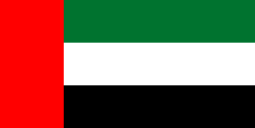Water is one of the most valuable resources in the United Arab Emirates (UAE), a country known for its arid climate and limited natural freshwater sources. With the growing population, industrialization, and rising demand for clean water, ensuring safe and potable water is more critical than ever. Thankfully, advancements in technology have made it possible to achieve high water quality through a range of modern methods of purification of water purification.
In this blog, we’ll explore the different methods of water purification used in the UAE, highlight the 5 methods of water purification most commonly applied methods, and explain why understanding the types of water purification methods is essential for both public safety and sustainability.
Why Water Purification Matters in the UAE?
The UAE relies heavily on non-traditional sources for its water needs. With scarce rainfall and limited groundwater, most of the country’s potable water comes from desalination and treated wastewater. This makes the methods of purification of water purification crucial not just for health, but also for supporting agriculture, industry, and urban development.
High temperatures and the potential for contamination from saline groundwater, pipeline corrosion, or chemical pollutants make water purification a necessary step at every level—from municipal treatment plants to home filtration systems.
What Are the 5 Methods of Water Purification?
While there are many types of water purification methods, five modern techniques are widely used across the UAE for their effectiveness in removing contaminants and ensuring safe drinking water:
1. Reverse Osmosis (RO)
Reverse Osmosis is one of the most advanced and widely used methods in the UAE. In this process, water is forced through a semi-permeable membrane that removes dissolved salts, heavy metals, bacteria, and other impurities.
- Where it’s used: Desalination plants, homes, commercial buildings
- Why it’s important: Ideal for turning saline seawater into potable water, which is a major source of supply in the UAE.
2. Ultraviolet (UV) Disinfection
This method uses UV light to kill bacteria, viruses, and other pathogens without using chemicals.
- Where it’s used: Hospitals, labs, residential water systems
- Why it’s important: Provides an additional layer of microbial protection, especially where chemical disinfection may not be suitable.
3. Activated Carbon Filtration
Activated carbon filters are effective in removing chlorine, bad taste, odor, and organic compounds from water.
- Where it’s used: Domestic filters, office dispensers, restaurants
- Why it’s important: Enhances taste and removes residual chemicals, making it ideal for personal consumption.
4. Desalination by Multi-Stage Flash Distillation (MSF)
Used primarily at large-scale facilities, MSF involves heating seawater and converting it to vapor, which is then condensed back into pure water.
- Where it’s used: Major desalination plants in Abu Dhabi, Dubai, and other emirates
- Why it’s important: It meets over 90% of the UAE’s drinking water needs, especially in urban areas.
5. Electrodeionization (EDI)
This method combines ion-exchange and electrical current to purify water without using chemicals.
- Where it’s used: Pharmaceutical industries, electronics manufacturing
- Why it’s important: Provides ultra-pure water for highly sensitive processes.
Other Different Methods of Water Purification
While the above are the top 5 methods of water purification, the UAE also utilizes other systems depending on the purpose:
- Sand Filtration: Often used in agricultural or industrial water systems
- Chlorination: Still used in some municipal systems for its cost-effectiveness
- Nanofiltration and Ultrafiltration: Emerging technologies with promising results in selective contaminant removal
Types of Water Purification Methods at Home
For UAE residents, ensuring safe drinking water at home involves using combinations of the following:
- RO systems under kitchen sinks
- Countertop or pitcher filters using activated carbon
- UV purifiers are installed alongside existing filtration systems.
- Smart water dispensers with multi-stage purification
Given the high TDS (total dissolved solids) and potential contaminants in some piped or bottled water, choosing the right purifier ensures both health safety and taste satisfaction.
Sustainable Water Purification in the UAE
With the UAE’s Vision 2030 focusing on sustainability, the country is investing in eco-friendly water purification technologies:
- Solar-powered desalination plants
- Wastewater treatment and reuse for landscaping and industry
- Smart monitoring systems for water quality control
These innovations are making methods of purification of water purification not only safer but also more sustainable and efficient.
Ion Exchange: Reducing Waste with INDION Resins
Ion Exchange offers a comprehensive range of ion exchange resins that have become the preferred choice across diverse industries. The pharmaceutical-grade resin facility is USFDA compliant and WHO-GMP certified, ensuring the highest standards for health and safety. The INDION series of ion exchange resins includes a variety of Gaussian and uniform particle-size beads available in both dry and moist forms. These resins, with customizable surface area, porosity, and matrix, cater to a wide range of applications in industries such as pharmaceuticals, food and beverage, nuclear, chemical, biodiesel, hydrometallurgy, and sugar processing, offering optimal solutions for water and non-water treatment needs.
RANGE OF INDION RESINS: WATER-BASED RESINS
- Industrial Water Treatment
- Potable Water Treatment
RANGE OF INDION RESINS: NON-WATER-BASED RESINS
- Catalyst Grade Resins
- Adsorbent Grade Resins
- Chemical & Special Process Resins
- Pharma Grade Resins
- Nuclear Grade Resins
- Hydrometallurgy Resins
- Food & Beverage Grade Resins
- Sugar Refining Resins
- Resins for Biodiesel
Conclusion
Water purification is not a luxury—it’s a necessity, especially in a desert nation like the UAE. Understanding the difference between the methods of purification of water purification, knowing the types of water purification methods, and implementing the right solutions can drastically improve public health, operational efficiency, and environmental sustainability.


